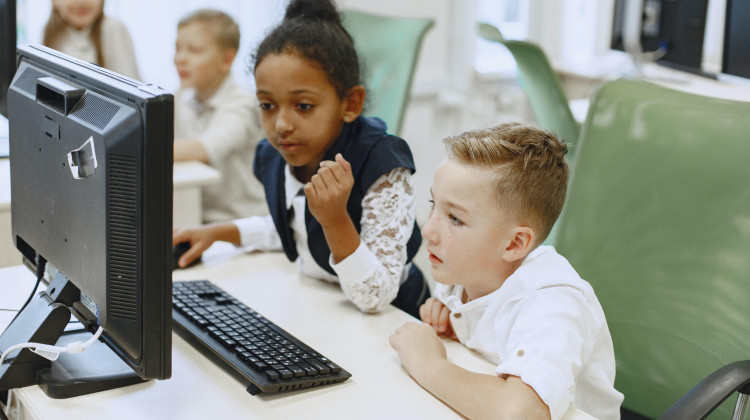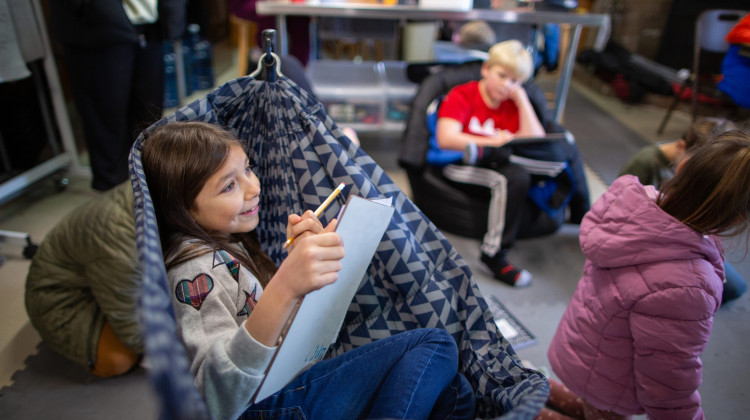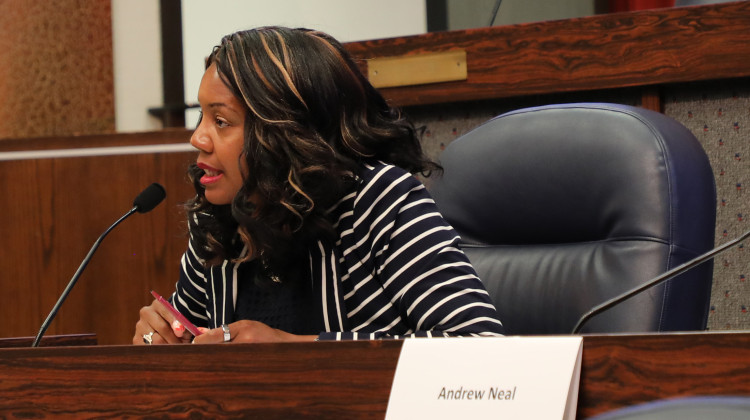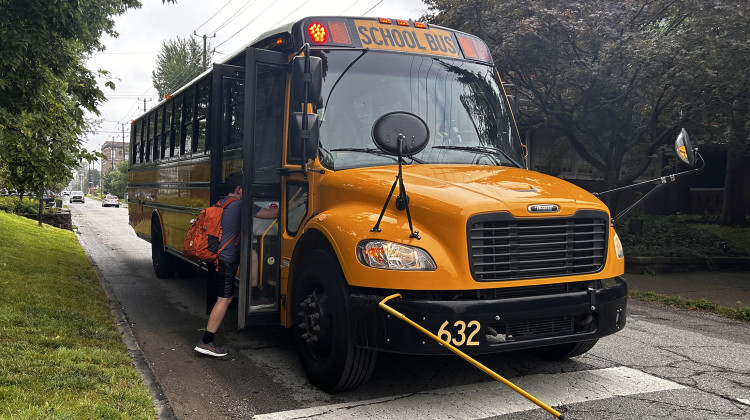
School districts across the country are experimenting with how to use AI in the classroom.
Gustavo Fring / PexelsStudents in Indiana are starting a new academic year with powerful technology at their disposal: generative artificial intelligence. Tools like ChatGPT and Google’s Bard are easily accessible and can generate essays as well as answer math problems. In short, students may be tempted to use — or already are — generative AI to complete their school assignments. Meanwhile, most schools and educators haven’t settled on a way to regulate or incorporate these tools in the classroom.
According to a new report from the Brookings Institution, districts across the country are experimenting with how to use AI in schools; New York City Public Schools, for example, reversed an initial ban on ChatGPT and is now promising to provide teachers with resources related to successful implementation of AI technology in schools. And some schools in Texas are testing out how to use AI both in the classroom and for administrative purposes.
Kyungbin Kwon, an Indiana University associate professor, studies AI and student learning; he was one of several researchers who conducted a recent study that explored middle schoolers’ conception of AI and how their understanding of the technology changed over the course of an AI summer camp
WFYI spoke with Kwon about what advice he has for teachers who are concerned about this technology.
This interview has been edited and condensed for clarity.
Lee V. Gaines: What advice do you have for educators who are worried that their students will use this technology to do their homework and write their essays for them — essentially to cheat?
Kyungbin Kwon: That is a big concern in education. And I think this concern will be changing soon, once we develop some kind of a consensus towards AI technology. I think the concern regarding cheating can be changed once students realize that their cheating behavior can be detected easily by teachers.
For example: my daughter, she’s in high school, and in her English class, her friend submitted an essay generated by AI and the teacher used an AI detection program and she realized that essay was generated by AI — with almost 100 percent confidence level. The teacher called the student and gave her another chance to submit the essay.
I think this is a technical issue. And then from the pedagogical perspective, we can approach this one little differently. I want to emphasize that generative AI has more potential than harm. And eventually, many people in our society will use generative AI in their career — even reporters and even scholars and even the salesperson. The issue is not just using AI or not but how they use it. If they use it ethically, and responsibly and creatively, I think there is a kind of benefit to us.
Gaines: Given that the technology we have to detect AI is imperfect, should educators think a little bit differently about how they assign homework and how they assign coursework outside of the classroom?
Kwon: I would like to change this kind of perception from concern to an optimistic view. If I was an English teacher, I would let students use ChatGPT or Google Bard to edit their draft. [I would ] let them submit the first draft that the students wrote by themselves without using any technology, and let it be edited by ChatGPT or Google Bard and let [students] see the difference. I think this is how we can use generative AI in a positive way, not just banning the technology.
Another example: let students understand the mechanism of AI. Students may rely heavily on AI, but actually AI technology is not perfect — even the detection of AI is not perfect. So, let students understand how AI generated the response. [AI] is trained on big data, and it is not based on facts, but on the neural network. What they generate can be fictional. Let students understand the mechanism and the principal of AI and then they can use the AI technology more responsibly.
But still, there’s a big hurdle; educators are not familiar with generative AI yet.
Gaines: What are the upsides? Like how do you see generative AI aiding in student learning in the future?
Nowadays, there are many articles published in language education that explore how to use the ChatGPT for providing feedback, analyzing writing styles, and checking grammar and punctuation. Generative AI has that kind of functionality that we can use as educators.
So, I think soon, the education system will change. And I would like to emphasize that our society needs to be proactive in not just adopting, but opening the possibility to change our educational system based on this advanced technology.
Gaines: You sound very hopeful about what this technology could do for education.
Kwon: Yeah, actually, I'm very optimistic. I have a very positive attitude towards the technology.
Gaines: What advice do you have for students this fall who might be turning to ChatGPT or Google Bard or other generative AI models out there to help them with their schoolwork?
Kwon: Students should not be just a passive consumer of the technology, they need to be a creator. So, I would like to emphasize that the students are the active agent using the technology. They are not the servants of the technology. If they use the technology like a servant, they will just let AI generate their homework and submit it without any thinking.
But if they can be a critical user of the technology, they will develop their idea and use the technology to elaborate their idea, and finalize their idea, or check for an alternative view.
For example, if I am a student and I’m writing an argument for a certain issue, I can use ChatGPT to suggest a counter argument. And I will see what is the weakness of my point and what is the value of the counter argument. That kind of active learning will help me to generate a better argument or essay. Students should be an active learner using the technology, not just a passive customer of the technology.
Gaines: Is there anything else you’d like to add?
Kwon: I'm too optimistic about the technology. But when we look back on our educational history, we have better education when we have better technology. Our current education system is much better than 50 years ago, I think, because of the evolution of educational theory, and even the technology outside of education.
So, I know there are many concerns related to generative AI, but I would like to emphasize that educators should open their eyes and see the potential.
Contact WFYI education reporter Lee V. Gaines at lgaines@wfyi.org. Follow on Twitter: @LeeVGaines.
 DONATE
DONATE








 Support WFYI. We can't do it without you.
Support WFYI. We can't do it without you.